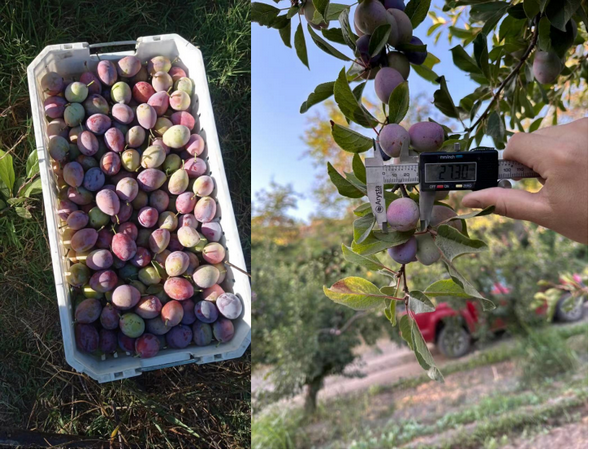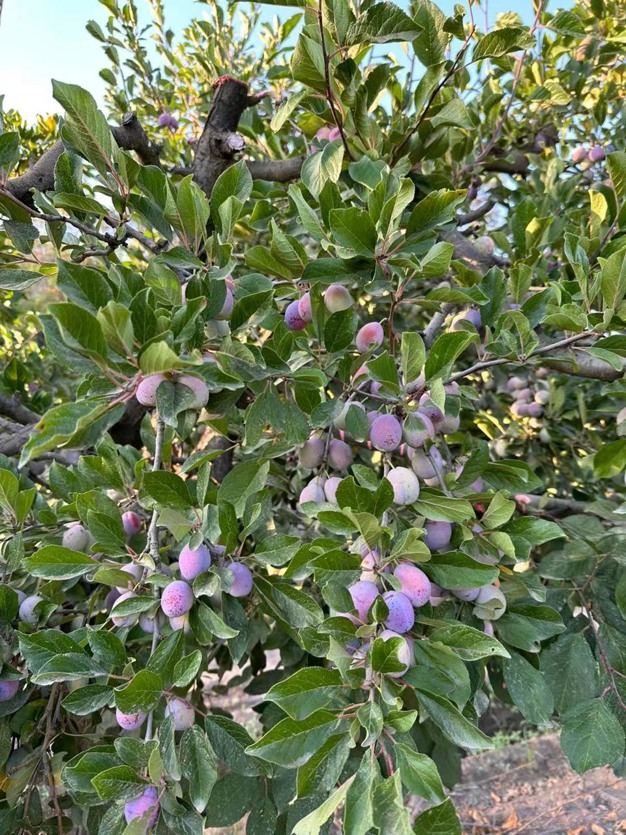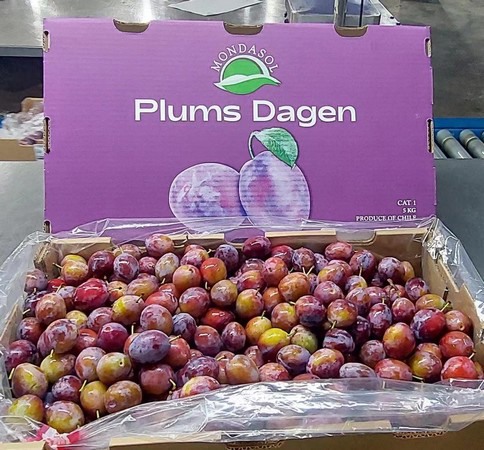Imported plums are a large-volume import item in the Chinese fruit market after the Spring Festival. "Taking Chilean plums as an example, the import volume this year has increased by nearly 15% compared with last year, and the overall sales are smooth. Judging from the comprehensive performance in recent years, imported plums have great growth potential in the Chinese market," said Andy Xie from Shanghai Junli International Trade Co., Ltd., talking to FreshPlaza.

"There are several reasons for the growth of the plum market: first, the Chilean cherry market recovered well during the Spring Festival this year, which has given farmers confidence in the Chinese market after the pandemic. Second, the market supply of fresh plums has gradually increased in recent years. In addition, Xinjiang prunes are becoming more and more popular, which has increased the market's acceptance and appreciation for plums. On the other hand, due to the cold spring this year, the production season of various domestic fruits has been postponed, so there is less competition when imported plums are on the market."
 The import volume has increased, but many merchants in the wholesale market feel that the arrivals this year have decreased. According to analysis, this may be due to the accelerated sales of goods, resulting in them going "out of stock" too quickly. At the same time, the number of distributors who purchase directly from the source is gradually increasing, without going through the fruit market or related companies.
The import volume has increased, but many merchants in the wholesale market feel that the arrivals this year have decreased. According to analysis, this may be due to the accelerated sales of goods, resulting in them going "out of stock" too quickly. At the same time, the number of distributors who purchase directly from the source is gradually increasing, without going through the fruit market or related companies.
In terms of quality, Andy thinks that the taste was better last year: "Last year's plums were sweeter and juicier. However, due to the pandemic in Shanghai last year, some batches were backlogged for a long time and affected the quality, which made the market uneven. But judging from the quality of the supply, the taste was better last year.”
China's imported fresh plums mainly come from Chile and Australia. In recent years, the supply of Chilean plums has increased year by year, and the quality has improved, while the quantity of Australian plums coming to China has decreased this year.
"The reason is, first, the difference in varieties. The mainstream variety of Australian plums is Tulare Giant, which is larger in size. The mainstream variety of Chilean plums is Dagen, which tastes sweeter. The taste of the Chilean plum is more suitable for the Chinese market. Secondly, the packaging and technical processing of plums has been improved to make the export quality more stable. The decrease in imports of plums from Australia may be related to the poor returns of the plum market last year."

Regarding the development of imported plums in the Chinese market, Andy believes that the prospects are promising: "Their consumption in China has been growing, and the market recognition has been improved simultaneously. The prospects are optimistic. On the other hand, the arrival of some imported plums still affects sales due to the lack of ripening. In order to improve the quality of the goods, the production area needs to continue to strengthen the standardization, the control of the maturity when picking, and the pre-harvest and post-harvest treatment."
Shanghai Junli International Trade Co., Ltd., headquartered in Shanghai Huizhan Market, has stalls in Jiaxing, Zhengzhou, Gaobeidian and other wholesale markets. The company's main business is cherries, blueberries, plums, apples, durians, dragon fruits and other categories, with market stalls and e-commerce as the main sales channels.










